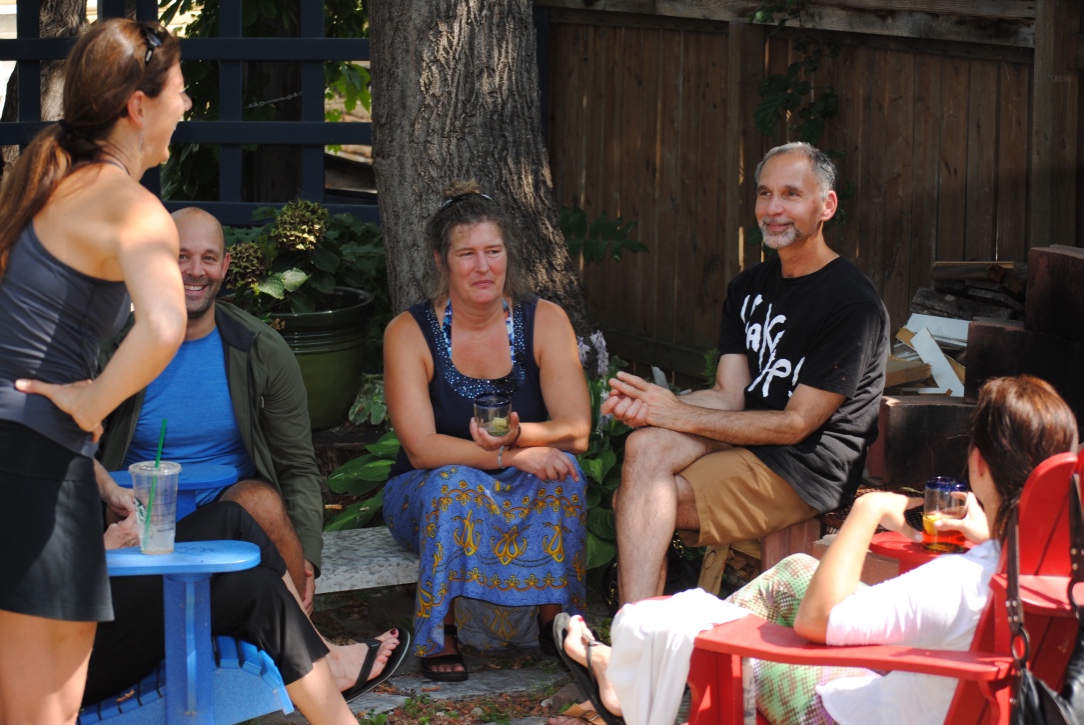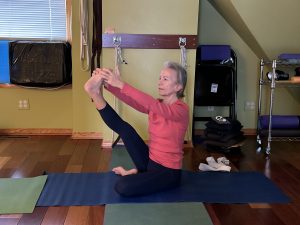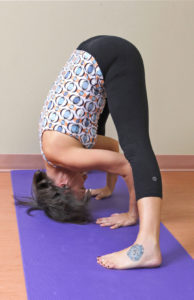Although most western-culture dictionaries treat detachment and indifference as synonyms, they have a crucial difference. Their common element — non-reaction — is paralleled by indifference’s additional qualities — coldness, passionlessness, lack of feeling/sympathy. I thought my friend Chris said it best.
There is a huge difference between not taking it on (detachment) and not giving a #!%@ (indifference). Life matters to me. I am not indifferent to living, but I do not wear suffering. I am aware of struggle and suffering, but I choose not to own them or let them overwhelm me. I can now detach from them.
How did I do that? Well, the source of my past suffering was my reactions to events, people and things in my external environment. When I came to understand my emotional reactions have nothing to do with what is outside of me, I could focus on changing what is under my control, what is inside me. My reactions, whether positive or negative, are reflections of my own inner experience—perceptions, social conditioning (beliefs) and desires. In other words, if I was thinking or feeling negative, then I would project that experience onto people, things or events outside of me. Of course, the converse is also true.
Projection is a psychological term describing a defence mechanism “in which the human ego defends itself against unconscious impulses or qualities (both positive and negative) by denying their existence in themselves while attributing them to others.” A clear example is a person who habitually does not share “air time” with those around yet accuses others of talking too much. Another example is someone who is always nice to everyone yet accuses another person with that same niceness to be manipulating others in order to get what they want. In either case, the purpose of the defence mechanism is to shift blame and find fault elsewhere. In truth, the blamer’s ego is distorting what is really happening. As Chris further shared, when his ego is driving his thoughts, words and deeds, illusion and/or delusion are operating to distract him from f.e.a.r.; the anacronym for false evidence appearing real.
However, when my ego takes the back seat and my true self moves to the foreground, I am living in my truth. There is learning in everything regardless of whether it appears negative or positive. Content is value-free, and when we see this clearly, only then is it about me being 100% me all the time. Life is about learning how to remain connected to my true self in each emerging moment.
I get it now. Any reaction that takes me away from right now is only a distraction. For instance, striving to matter takes me out of the state of being authentic and, thus, prevents me from fully actualizing my truth and contribution. We are really only detaching from our fears, conditioning, false perceptions, compulsive habits. And in doing so, we make room for our truths to rise to our conscious awareness. Instead of allowing our intuition to be overwhelmed by the distractions brought forth from our ego, our confidence, curiosity and compassion are ignited.
For a really long time, I tried to feel like ‘I matter’. In my childhood, I interpreted this to mean “when you are smart, then you matter.” Over the years, all my energy went into trying to be the smartest in the room. Trying to be smart in the eyes of others distracted me from recognizing the real issue — “I felt like I didn’t matter.”
Chris’s discovery that what we react to is where our attachments lie is a powerful tool for revealing our blind spots—our unconscious habits. All you need to do is watch your daily reactions and then dig deeper with your awareness. Try this out right now. Close your eyes, and recall a very recent event that left you with a positive reaction. Ask yourself, “Why do I feel positive about this? Often people will answer, “Because it makes me feel good.” Ask yourself, “Why does this make me feel good?” You will likely need to keep asking “Why?” of each response (at least five times) until you get to the source of your reaction.
Did you notice that with each “Why?” it became increasingly more difficult to bring forth your answer? This difficulty or resistance to knowing the truth is your ego’s attempt to distract you from it. The degree of resistance or difficulty increases when you do the same awareness exercise with a negative reaction. Give it a try.
In my blog last week, Practice + Non-attachment = Navigation Skills for Being Human, I alluded to this connection between attachment and resistance. To uncover your unconscious patterns, notice your reactions (positive and negative), which show you where your attachments live. As you begin the journey of releasing your attachments, notice your resistance. The greater the resistance, the greater the attachment, the greater the fear.
The greater the resistance,
the greater the attachment,
the greater the fear.
At the point of confronting resistance is where we can choose to give up, push through or lean in. We all know that giving up results in the unconscious pattern’s continuation. What we may not understand is that “pushing through” is not the same as “leaning in.” Pushing through resistance takes enormous energy or willpower and all of that being done without understanding why the resistance exists. When we forcefully push through, there is no space or energy left for understanding. Frankly, pushing through is just another ego reaction not dissimilar to suppression. And as Chris pondered, Am I certain I am learning the right lesson when I push through? What a great question!
On the other hand, leaning in to resistance, by stopping and listening to our inner experience, allows us to learn why. In addition, creating space for life to enter us instead of forcefully using our willpower to manipulate life allows us to be in the world with greater ease; less effort. The human “true state of being” is one of peace, love and joy, which amounts to a balanced existence as opposed to imbalance, not mattering and unhappiness.
Imbalances such as anxiety, depression and fearfulness are learned reactions and become conditioned ways of living. Until we have the felt experience of another way of being, we are not aware that one exists. Our human and spiritual work is to create the conditions for everyone to have the experiences they need … to ensure people feel like they matter. Just imagine, for a moment, a world where we all matter.





